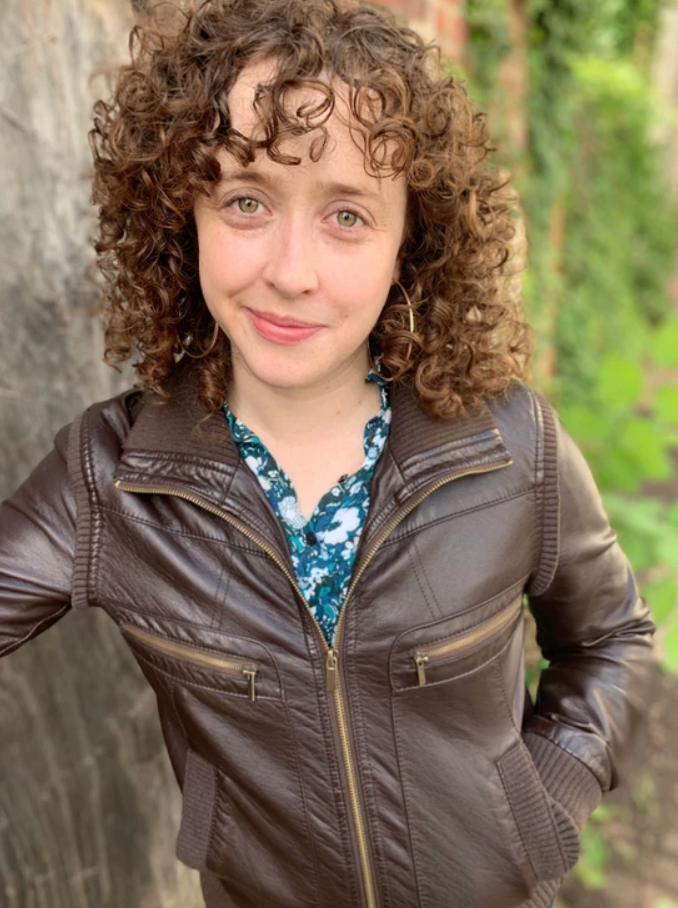Alumni Profile: Elizabeth Rogers '07
In the first installment of our new Oberlin Shansi Fellowship Alumni Profiles, we are delighted to feature Elizabeth (Beth) Rogers. Beth graduated from Oberlin in 2007 majoring in Creative Writing and Dance and served as a Shansi Fellow from 2007-2009 at Shanxi Agricultural University in Taigu, China. Since finishing her Shansi Fellowship, Beth has published two books of poetry and several essays, along with holding teaching positions at Kenyon College, Cornell University, Tulane University, Bard Early College New Orleans, and George Mason University. Her first book, Chord Box, was published in 2013 and was a finalist for both the Miller Williams Prize and the Lamba Literary Award. Chord Box can be purchased online at https://www.uapress.com/product/chord-box-2/. Her most recent book, The Tilt Torn Away from the Seasons, was released in February 2020 and can be purchased through the links below:
https://bookshop.org/books/the-tilt-torn-away-from-the-seasons-poems/9781946724267 https://press.uchicago.edu/ucp/books/book/distributed/T/bo50327199.html
Can you describe your career path post-fellowship?
Beth: I went to grad school (MFA in Poetry) at Cornell University immediately after Taigu, and then on to Kenyon College as the Kenyon Review Fellow from 2012-2014. Since then I've had a string of academic positions at various schools; I've also published two books of poetry and many essays.
How has your Shansi Fellowship in Taigu contributed to your journey as an author?
Beth: I wrote most of my first book, Chord Box, when I was in graduate school, but the truth is that some of the important poems were written while I was in Taigu on my fellowship. And my most well-known essay--"One Person Means Alone," which ended up being anthologized in both Best American Travel Writing and Best American Nonrequired reading--is a cultural meditation on living in Shanxi. On a deeper level, though, I think the experience of living and working in Taigu expanded my perception and cultural knowledge, giving me more material to draw from as a writer. The experience of learning Mandarin, too, made me re-evaluate so many important aspects of my writing: my attention to sound, form, and metaphor. When I look back at the writing I did in my 20's, I see a clear division: the work that came before China, and the work that came after. The "after" work was richer, more complex, more interesting.
What advice would you give to Fellows who have recently finished their Fellowships?
Beth: I would try to find some way to connect your Fellow experience to whatever it is you're currently doing, even if it's small. For me, it was writing my first book, since many of those poems were about the experience of learning Mandarin.
Part of your first book, Chord Box, takes place in China. How do you think your experience in Taigu has influenced your writing?
Beth: When I first arrived in China, I didn't know any Mandarin, and it took a while for me to get conversational in the language. Interestingly, my poems during that time became more minimalist-feeling: lots of blank space, short lines, fragmentation, more attention to pacing and silences. This definitely mirrored that sense of displacement I felt early on. It's a style that still influences my writing.
What do you think is unique about a Shansi Fellowship?
Beth: A two-year term (as opposed to a single year, like some other programs) really allows Fellows to fully commit to the place they're living, makes them more than just visitors. The Shansi Fellow cohort is also super small, meaning that Fellows can easily stay in touch and visit each other. I spent so much time visiting and traveling in Indonesia with my now-wife (Sarah Newman, Banda Aceh, 2007-2009) that I feel that I got a secondary experience in Indonesia in addition to my main life in Taigu.
Can you tell us a favorite / memorable moment from your time in Taigu?
Beth: For me, the best aspect of the Taigu fellowship is the close-knit community, the small-town feeling at Nong Da. My favorite moments were the small ones, things like sitting in the north yard with my closest Chinese friend, drinking beer and gossiping late into the night.




